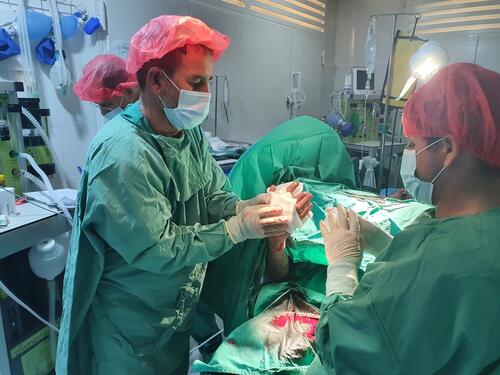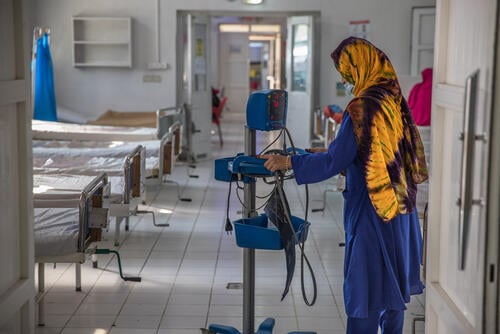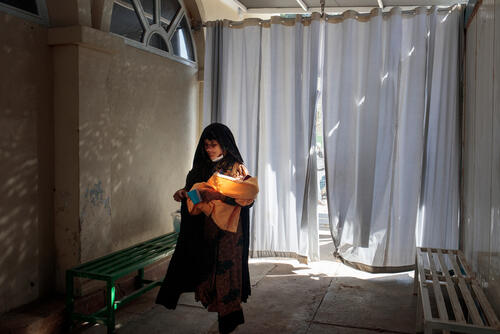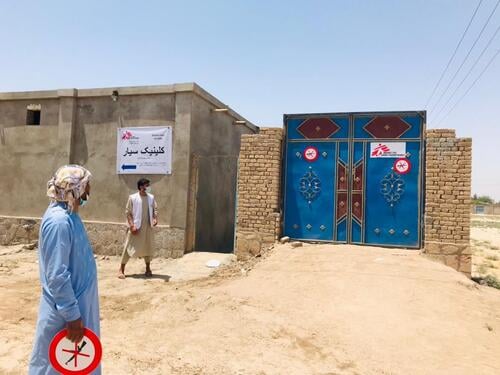Last week, after weeks of intense fighting, the Islamic Emirate of Afghanistan (IEA, also known as the Taliban) entered the city of Kabul as the government collapsed. The IEA declared the war over and assumed control over the country.
While many people and organisations have fled Afghanistan, our teams are staying put, providing essential medical care to people across the country. Given the current instability, displacement of people and acute health needs, we are concerned about access to healthcare for everyone.
Since the end of the fighting we have seen a change in the needs that people present with in our projects and many of our facilities are now full. As well as people who were injured in the fighting and require follow up care we are once again treating patients with a wide variety of health conditions who, now the fighting has ceased, find it easier to access our facilities.
Our medical activities are running in all five projects in Herat, Kandahar, Khost, Kunduz, and Lashkar Gah.

Increase of patients in Herat clinic
In Herat we have seen a slight reduction in the number of patients presenting at our COVID-19 treatment centre and inpatient-therapeutic feeding centre (ITFC). However, at the Kahdestan clinic, where we provide outpatient care, treatment for non-communicable diseases and sexual and reproductive services, we have seen an increase in patients as other clinics in the area have suspended their activities.
Trauma care in Kunduz
On Monday 16 August we moved all our patients from the Kunduz Emergency Trauma Unit (KETU), to the new Kunduz Trauma Centre (KTC). The KTC will have 30 beds to start and one operating theatre. We are treating people injured in accidents, as well as people wounded in the fighting. Between 9 and 14 August we treated 63 patients, the majority for wound debridements (the removal of dead or infected skin tissue to help a wound heal).
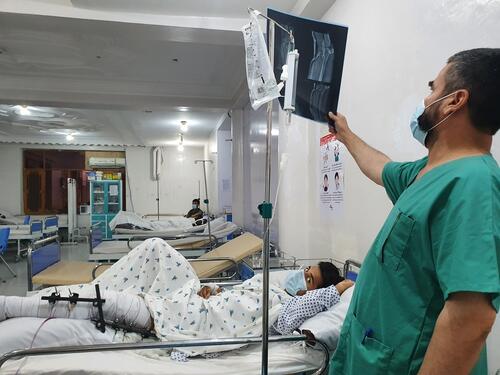
Accessing maternity care in Khost
Our activities continue in the maternity unit in Khost, and in the eight supported comprehensive health centres (CHCs). In July we assisted 1,450 births in the Khost maternity hospital and over 870 in the CHCs.
When Khost faced instability recently, people found it difficult to access health facilities. The MSF maternity unit normally focuses on complicated cases but decided to expand its admission criteria to ensure safe maternal and neonatal healthcare.
Displaced people in Kandahar
During the fighting, we were able to continue our care for drug-resistant tuberculosis (DR-TB) patients by providing remote consultations to avoid them having to cross frontlines to access care and our TB care is continuing today.
The Haji camp where 5,000 people were staying is now largely empty. Our teams are aiming to relocate a clinic to a location closer to our TB centre, to continue providing healthcare to children under five. Before we stopped working in the Haji camp, the main health issues we saw were diarrhoea, upper respiratory tract infections, anaemia, and eye and skin infections.
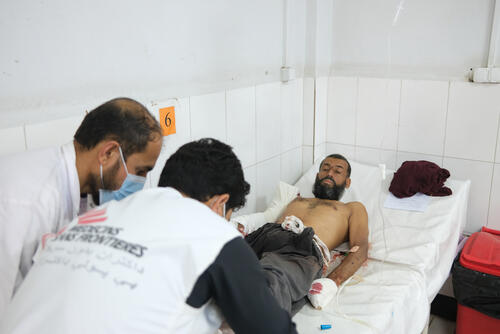
Addressing a spectrum of needs in Lashkar Gah
People who delayed seeking medical help whilst there was intense recent fighting are arriving at our hospital for care. Over the past few days, the emergency room has been full with many people presenting with respiratory problems, gastrointestinal problems and trauma injuries related to the fighting and road traffic accidents. Our teams have been seeing around 800 people a day in the emergency room.



